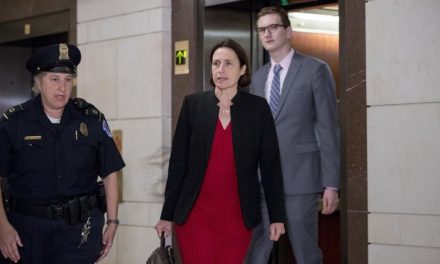Shimon Peres: Dimona reactor was ‘first step to Oslo’
Exactly 11 years after the Declaration of Independence, on May 8, 1959, Yedioth Ahronoth printed a less-than-ordinary headline: “An atomic reactor is being built in the south; to become operational this year.”
The report was about the nuclear reactor in Nahal Sorek, near Jerusalem. A year and a half later, on December 19, 1960, another vague report was printed: “Official American demand to produce details on atomic activity in Israel; a secret discussion was held in Washington following news of an Israeli atomic reactor near Be’er Sheva.”
The report hinted about the construction of a secret nuclear reactor near Dimona, spearheaded by none other iconic Israeli statesman Shimon Peres.
“Ben-Gurion believed in nuclear energy,” Peres says now. “At first we tried to get a nuclear reactor from America. In America they told us, ‘without supervision, we have nothing to talk about.’ President Eisenhower had an aid plan to use the nuclear reactor to create isotopes for medical purposes. Those who participated in the plan got $500,000 and a small reactor that was capable of producing several grams of enriched uranium.”
Israel accepted the offer, Peres recalled: “We decided to take it and we built it in Nahal Sorek. But since we were against supervision, we build the additional reactor in Dimona at the same time -we did that with the French.”
President Kennedy and Israel’s’nuclear ambiguity’ policy
Kennedy was sitting on his rocking chair and started asking questions. Suddenly he asked, ‘do you have nuclear weapons?’ I told him, ‘Mr. President, Israel will not be the first to bring nuclear weapons into the Middle East.’ When we left, Ambassador Herman yelled at me, ‘Who let you say such a thing?’ I said, ‘What do you want me to do? To tell Kennedy I was going to call (then prime minister) Eshkol and ask him?’ Several weeks later it became the official Israeli policy. In my conversation with Kennedy, I outlined the ‘nuclear ambiguity’ policy.”
Perhaps it’s time we break free of this ‘nuclear ambiguity’ policy?
“What for? It was right then and it’s right today. One time Amr Moussa, an Egyptian foreign minister who I was close to, came to me and said, ‘Shimon, are we friends?’ I said, ‘Yes.’ And he said, ‘Take me to Dimona, let me see what’s going on there.’ I said, ‘Have you gone crazy? If I take you to Dimona and you find out there’s nothing there, you will no longer be afraid of us. What am I crazy? I want you to continue being afraid. This is the best deterrence.”
How did you manage to recruit the French for the job?
“Ben-Gurion wasn’t too excited about the French. Every French I brought to him he would ask, ‘Why did you lose the war?’ But he told me, ‘Go to France.’ We had a Polish agent in Paris called Stephen who took 10 percent from us for mediation. One day we came to him for dinner, he lived in a palace Napoleon built to his wife Joséphine. He lived with a beautiful Polish movie star, and served the food in golden dishes. I told him, ’10 percent is a lot, we’re a poor country.’ And he said, ‘I’m not taking this for myself, I’m paying a government official,’ and gave me the name of the man. I called this man, introduced myself and asked to see him. We met and started working together.”
« click for more info
Frontpage of Yedioth Ahronoth announcing Dimona build (in Hebrew)
More below the fold …
Netanyahu pulls out doomsday weapon again
Op-ed: Prime minister is failing to understand that the Europeans’ sense of urgency is not about what happened in the continent 60 years ago, but about what is happening in the territories right now.
After the decision to call early Knesset elections was announced, European diplomats in Israel issued a recommendation to their supervisors to watch what they say about the Israeli prime minister.
The reason for their warning was clear. “Public criticism will only help Benjamin Netanyahu,” they wrote. “The prime minister will respond firmly in an attempt to prove to his voters that he is the only one protecting Israel’s vital interests against the world.”
The series of decisions made around the continent, reflecting many Europeans’ support for the establishment of a Palestinian state, prove that the European Union is not intimidated by Israeli politicians’ threats.
And surely enough, Netanyahu responded as expected and pulled out his doomsday weapon: The Holocaust, and mainly the European responsibility for the murder of the Jewish people. But with the Europeans at least, it’s no longer working.
…
The truth is that all the talks about how Obama’s defeat in the midterm elections would help Israel were shaky. It’s enough to look at the dramatic developments of the past day in Europe to know that Obama is still in control.The historic breakthrough in US-Cuba relations, the Russian economic crisis on the backdrop of US-led sanctions against Putin, and the nuclear talks with the Ayatollah regime with Iran, can be seen as decisive proof of the American president’s power – the same president Netanyahu’s associates enjoy mocking so much.
The lesson from the recent events is clear: Israel must advance an initiative for an agreement with the Palestinians – as the international community will no longer let it sustain a policy which ignores the growing frustration of an increasing number of people around the world.





